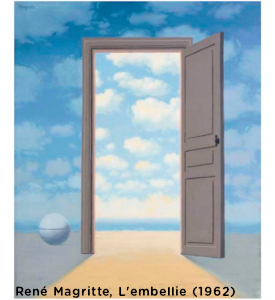

Vincent Mignotte, Executive Director, ABG
The word "grief" is frightening; it inevitably evokes the disappearance of a relative or loved one, and the unspeakable pain that accompanies it. The common expression "mourning" clearly indicates that it is a difficult path that must be followed, between shock and rebirth, diving and climbing.
However, the phenomenon of mourning also occurs in less catastrophic, even happy circumstances. For example, an engineer friend of mine told me a few years ago, "I worked on the dashboard of the Airbus; when I saw the plane take off for the first time, I understood that the project was over". A project that is coming to an end, and that forces us to move on to something else, triggers in us all the feelings of mourning. The reconfinement we have been experiencing since the end of October, after a summer where everything seemed to be possible again, is a shock for many of us. The return of winter, of lockdown, of masks, of "attestations" and closed stores, and especially of the fear of illness, inevitably destabilize us. So what is happening and what can we do?
The stages of grief were described by Elizabeth Kübler-Ross in her book On death and dying, in which she studied the feelings that patients experience after the announcement of their impending death, as well as those around them. There are five stages of grief:
These stages do not follow one another in this strict order, they are intertwined over time. Denial, anger and bargaining serve to protect us from shock by keeping reality at bay. Depression and then acceptance are an acknowledgement of this reality.
Elisabeth Kübler-Ross realized that the experience of grief was not limited to dying people and that it also manifested itself with divorce, loss of employment or other events. The health crisis obviously lends itself to the same analysis; the speeches of the guests on the 24-hour news channels are edifying : Denial: "There won't be a second wave", Anger: "No to closing bars and restaurants!". Bargaining: "The municipal decree will allow me to open my store despite the government decree" and so on.
The world has changed with the Covid-19 pandemic, it is probably temporary but it will nevertheless last well beyond 2020. Some of us have already been hit hard by the disease. Generally speaking, the first lockdown forced us to live and work differently, to organise ourselves, to deal with uncertainty and fear, to be creative too. We now have to accept the repetition of the epidemic and probably its worsening, and at the same time continue to move forward.
More recent studies on grief have shown that acceptance is not the final stage. Acceptance is an expectation of the inevitable. But to go beyond that is to find the "hidden gift". It means being able to say "This ordeal has taught me that..., has allowed me to...". It is a new meaning that we give to our lives and to the world, and that puts us back into action.
We can therefore now listen to ourselves, recognise what is going through us: anger, fear, resignation... and allow ourselves to say it: "I am sad at the moment". It is a first step towards becoming aware of what is most important to us: our values, our bonds, what we want to achieve, or the cause we want to defend. What are our priorities for the future, and what suddenly seems secondary or burdensome?
This path will be different for each of us. It will inevitably give rise to a new project, whether it is a personal project, a professional project, or a major life project. And summer will be back again.
References
Elisabeth Kübler-Ross, On death and dying (1969)
Elisabeth Kübler-Ross & David Kessler, On grief and grieving: finding the meaning of grief through the five stages of loss (2005)
David Kessler, Finding meaning: the sixth stage of grief (2019).